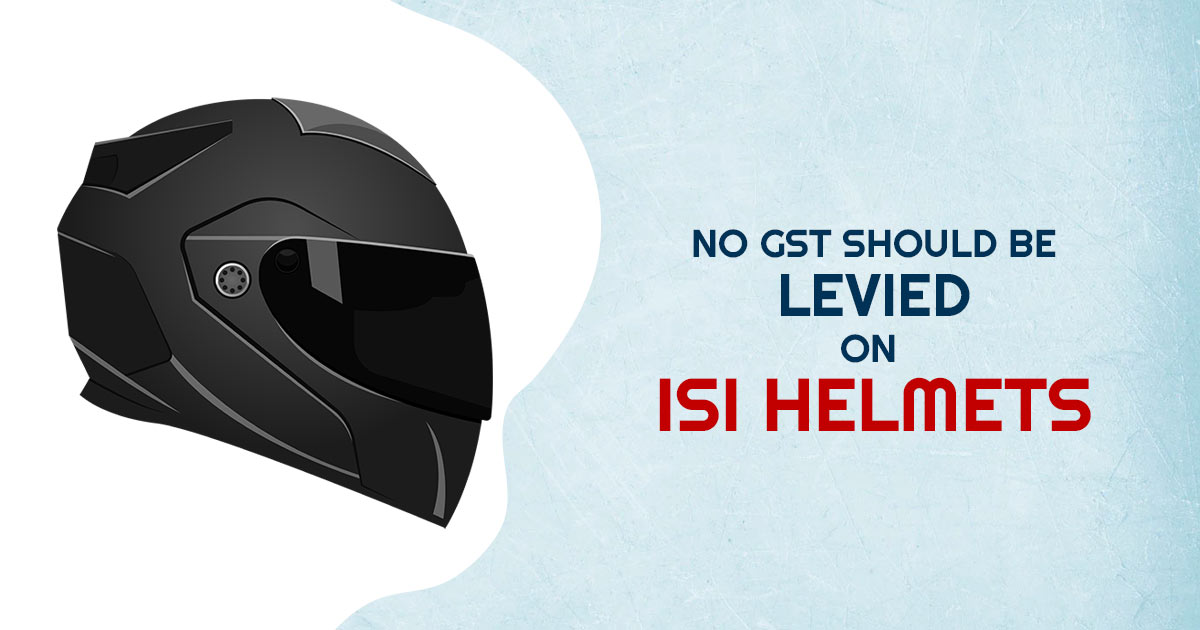
Due to the fact that many working-class individuals enjoy using two-wheelers for their daily journey, they have served as fuel for this nation. In many areas of India, transportation is a significant problem since many roads are still not constructed for the safe passage of four-wheelers and because overcrowded towns are congested with traffic. As a result, many individuals favour two-wheelers or have no other options.
But convenience also raises questions about safety. Riding a two-wheeler necessitates assuming personal responsibility for one’s own safety, whether it is weaving through traffic or navigating some of India’s poorly constructed roads.
The demand for ISI-approved, high-quality helmets has grown dramatically as people become more knowledgeable and aware since these products have repeatedly been shown to save lives.
The 18% GST imposed on helmets is a significant barrier for producers that want to make high-quality life-saving helmets more widely available and more reasonably priced. Hence, the helmet sector implores the government that as helmets are intended for safety, no GST should be applied to them. Similar to medications, helmets are life-saving tools.
Therefore, helmets will be excluded from GST in the same manner that pharmaceuticals are not subject to it. Additionally, unless helmets are exempt from taxes, costs will increase and the government’s aim to make the use of ISI helmets compulsory will fail.
According to statistics, India accounts for about 11% of all road accident deaths worldwide. Given that 1.5 lakh persons would die in road accidents in India alone in 2021, and that 70,000 of those deaths (44.5%) will be caused by two-wheeler accidents, both the public and the government should take road safety and measures very seriously.
Read Also: Unified System of Taxation for One Nation One Road Tax on Vehicles
About 13 individuals each day pass away in road accidents. Many of these fatalities are caused by inadequate or nonexistent helmets. In a nation where people view helmets as an expense, a 0% GST will encourage people to buy and recognize the value of decent helmets by restoring their trust in them.
Because there are so many catastrophic incidents on the roadways, helmets are essential for maintaining road safety. They are vital goods that save lives whether being ridden or sat on the back. Helmets and safety are closely related, thus it’s critical that this problem is given attention as quickly as feasible.
Comparing helmets to other items is not appropriate. They shouldn’t be subject to any GST laws since they fulfil a need that is much superior to that of other commodities.
Additionally, as the manufacture of fake helmets is already illegal, the abolition of the GST on helmets will lead to new highs in quality helmet sales and the eradication of the unorganized sector.
The government’s spending on road safety, which currently accounts for about 3% of the budget and includes expenses for an ambulance, insurance, police, traffic police, hospitals, and doctors, will be reduced to 1.5% of the budget as a result of the availability of reasonably priced, high-quality helmets.
This will reduce both the number of unfortunate deaths and the Gross Domestic Product (GDP) loss caused by traffic accidents in our economy. By 2025, it is expected that the 0% GST on helmets would have cut down on fatal car accidents by half.








